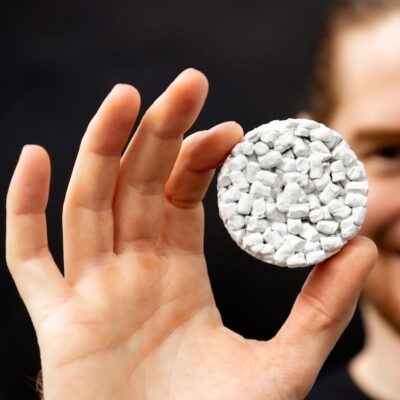Initiative encourages product stewardship in NZ
A new initiative is helping New Zealand businesses respond to a growing demand to take responsibility for the products they make and sell so they are not ending up in […]
A new initiative is helping New Zealand businesses respond to a growing demand to take responsibility for the products they make and sell so they are not ending up in landfill, writes Phil Crawford.
The Aotearoa Product Stewardship Campaign encourages businesses to offer end-of-life solutions for their products and promotes organisations that are leading the way. A key aim is to reduce the 2.5 million tonnes of waste going to landfill every year in New Zealand.
“That’s bad for the environment, it’s costing our country millions of dollars every year, contributing to our carbon emissions and it’s a shocking waste of valuable resources,” says James Griffin, General Manager Projects and Advisory at the Sustainable Business Network (SBN).
The campaign is being run by SBN in collaboration with Fuji Xerox, 3R Group, Inzide Commercial and Abilities Group. Financial support for the project has been received from the Waste Minimisation Fund, which is administered by the Ministry for the Environment.
Launched in August, the campaign’s website features a directory of businesses that offer product stewardship solutions, including 15 that are government-accredited. It also offers free resources including a step-by-step guide to setting up a product stewardship scheme.
“The first question businesses need to ask is: ‘What happens to this product at the end of its life?’ Support businesses that are providing you with a solution, not a problem,” says James.
In July the government announced it was making product stewardship mandatory for six ‘priority products’ including tyres, e-waste and packaging.
James says that’s a strong signal that there is an increasing demand for businesses to get involved and to support product stewardship. “It’s vital that businesses across all sectors are part of the solution to our country’s growing waste problem. That’s the focus of our campaign.”
An SBN survey shows there is strong demand. A massive 96 percent of respondents thought it was important that products were made of materials that could be repaired, reused or recycled. Furthermore, most thought businesses should take a product back when it reached the end of its life so it could be reprocessed rather than thrown away. However, the survey results suggested that only five percent of businesses were making product stewardship a requirement when choosing a supplier.
“There’s a big difference between expectation and reality. We’re aiming to close that gap. Businesses can download a free template of a product stewardship procurement clause from the website and use it to inform their suppliers of their expectations.”
James says introducing product stewardship into a business is a foundational step to creating a circular economy. “New Zealand is part of a global shift. Around the world we’re seeing increasing numbers of businesses introducing product stewardship into their operations. That’s helping them to build better relationships with their customers, making them more sustainable and saving money. These are huge benefits, which are more important than ever in the post-Covid economy.”
Walking the walk
One such New Zealand business is Fuji Xerox. “Our company has been running a government-accredited product stewardship scheme since 2015 to help reduce our environmental footprint. Last year alone this programme diverted more than 925 tonnes of waste from landfill,” says Managing Director Peter Thomas.
Fuji Xerox printers are designed for durability, disassembly and remanufacturing. At the end of life, the machines are either refurbished, or dismantled and harvested for parts. Remaining materials are recycled with carefully screened industry partners.
“Our programme was started to reduce waste to landfill and recover valuable materials for reuse and proper recycling. It’s now a point of difference and something our customers increasingly expect,” Peter says.
Meanwhile Inzide Commercial has diverted 330,000 kilograms of waste from landfill by remanufacturing old carpet tiles and giving them a second life.
Managing Director Steve Aschebrock says: “We’re definitely making a difference and now we need businesses across all sectors to join us. Product stewardship is the answer to our landfill problems. At the same time, it could support a thriving recycling industry.”
Over the past 16 years 3R Group has helped design and manage schemes for both individual businesses and industry groups, enabling them to reduce their environmental impact and improve resource efficiency. They include Resene PaintWise™, Agrecovery™ Rural Recycling, The Packaging Forum and Tyrewise™.
Marketing and Client Engagement Manager Toni Bye says: “These schemes create economic benefits such as protecting market access, employment opportunities, attracting new customers, and innovation in developing new products from what would otherwise be wasted materials”.
Phil Crawford is communications advisor for the Sustainable Business Network.






